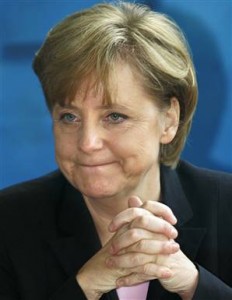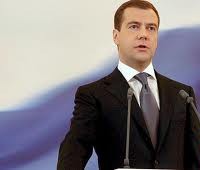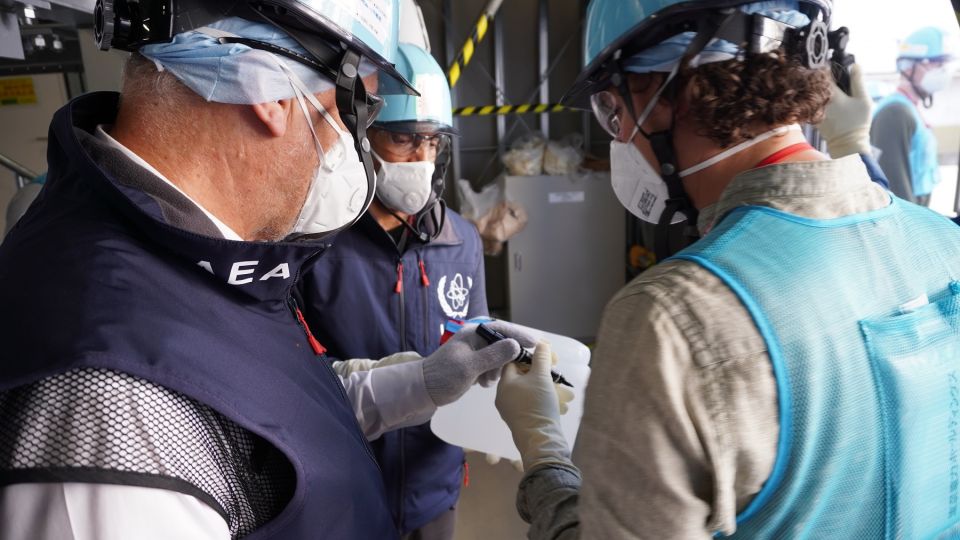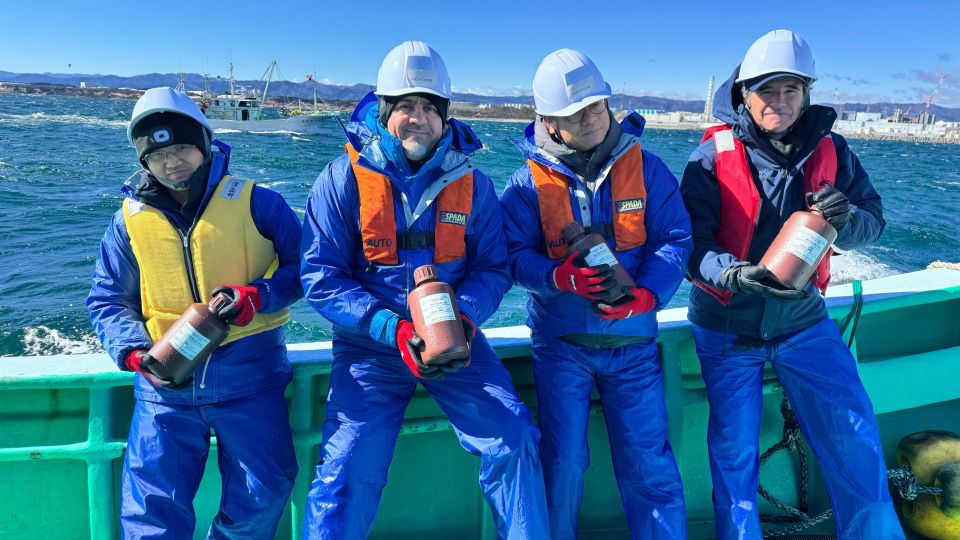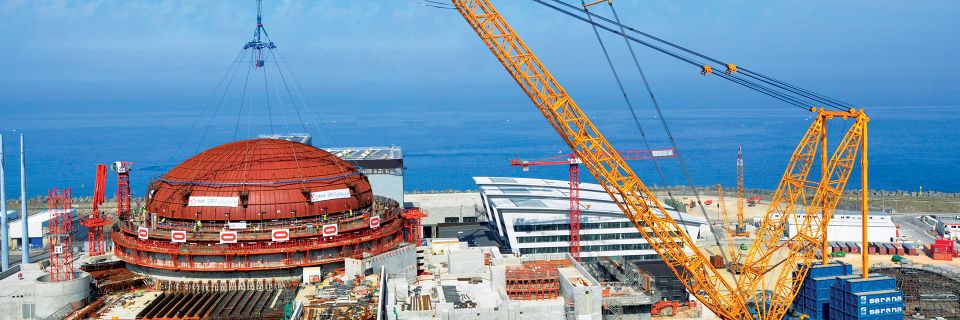Post Fukushima, Germany and Italy lead retreat from nuclear energy
Russia and Turkey say not so fast
German Chancellor Angela Merkel may be forced to abandon her plan to save the nation's 17 nuclear reactors from early retirement following a surge in voter support for the anti-nuclear Green Party. Last year Merkel issued a policy directive extending the operational lifetime of the reactors by eight-to-twelve years.
On March 14, just three days after the Fukushima earthquake and tsunami, she imposed a 90-day moratorium on life extension for seven of the oldest reactors. Her political opponents among the Social Democrats want to permanently close them.
Italy seeks to avoid repeating an emotional response
In Italy the government on March 23 approved a moratorium of at least one year in its plans to build as many as five nuclear reactors. The country stopped development of new reactors in 1988 and decommissioned the four units that were in service. The nation has since come to regret the decision, having some of the highest electricity rates in Europe.
Italy's minister of economic development, Paolo Romani, told Italian wire services that the 12-month hiatus will give the country the opportunity to make "calm informed" decisions about nuclear energy and not get swept up in the "emotions of the moment" over Fukushima.
Italy had been making progress developing its nuclear energy program with an eye on achieving a greater degree of security for electricity. The previous economic development minister, however, lost his job over an unrelated real estate scandal. The program was already losing momentum under the current government prior to the March 11 Fukushima event. It is likely that a new election with a new prime minister could lead to a renewed commitment to nuclear energy.
Russian reactor development will not be hindered
Russian President Dmitry Medvedev took the opposite view. In a statement released on April 15, he said that the nuclear crisis in Japan should not be used as an excuse to hinder the development of nuclear energy.
He called for international safety standards and quicker international response mechanisms in the event of an emergency. This last statement was seen as an implied criticism of Japan, which some say waited too long to ask for help from other nations as the crisis snowballed at the six-reactor Fukushima site.
"Catastrophes should not stop human progress, but they should be used to make proper conclusions," Medvedev said.
Sergei Kiriyenko, the head of Russia's state-owned nuclear agency Rosatom, said that he would continue to seek customers for export of Russia's VVER LWR reactor design. In recent years, Rosatom has signed contracts with Vietnam, India, and Turkey.
Turkey announces third reactor site
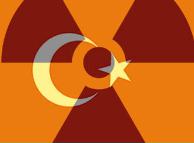 On April 6, Turkey announced that despite the international uproar over the Fukushima crisis, it would build its third nuclear power plant 12 miles from the Bulgarian border. This seacoast site is seen as a reach by Turkey to become a regional exporter of electricity to Bulgaria.
On April 6, Turkey announced that despite the international uproar over the Fukushima crisis, it would build its third nuclear power plant 12 miles from the Bulgarian border. This seacoast site is seen as a reach by Turkey to become a regional exporter of electricity to Bulgaria.
Russia has a previous agreement to build four 1000-MW VVER reactors at the Akkuky site on the Mediterranean coast. A second plant is planned for a site at Sinop on Turkey's Black Sea coastline. Tenders for that plant are still out with Japan, Russia, and Areva seeking to win the work.
It isn't clear who would be in line to build the new reactor(s) at the third site. Turkey has a pattern of mercurial behavior when it comes to awarding contracts of this size, and it has been unwilling to step up to assume some of the financial risks.
South Korea walked away from negotiations over the Sinop site when Turkey refused to guarantee electricity sales at profitable rates for the first 15 years of operations and to allow sale of the reactor at the 15-year mark to Turkish investors. The Russians sought and got both of these elements in their deal for the Akkuky site, which involves four reactors.
Siemens having second thoughts about its nuclear future
Back in Germany, engineering giant Siemens is reported to be having second thoughts about becoming a significant vendor to the global nuclear industry. The firm's chief financial officer, Joe Kaeser, told a German newspaper on April 15 that the firm is doing some soul searching, but he declined to say what action the firm might take as a result.
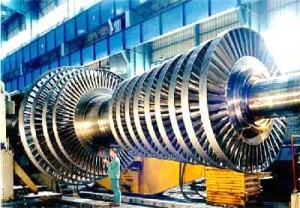 Siemens has already pulled out of its joint venture with Areva, in part due to disputes regarding liability for cost overruns at a reactor under construction in Finland. Siemens had been reported to be interested in developing a new relationship to supply turbines and other plant equipment to Russia's Rosatom.
Siemens has already pulled out of its joint venture with Areva, in part due to disputes regarding liability for cost overruns at a reactor under construction in Finland. Siemens had been reported to be interested in developing a new relationship to supply turbines and other plant equipment to Russia's Rosatom.
Since then, Siemens completed its sale of its 34-percent stake in Areva's nuclear business for a payment of (euro) 1.62 billion (about U.S.$2.31 billion).
The company's nuclear future may be in doubt as Germany is appearing to quickly exit the nuclear energy field. Also, Siemens is reportedly restructuring itself to focus on wind turbines, solar power plants, and smart grids. These "green investments" are seen as being in conflict with nascent plans to lash up with Russia on new reactor projects.
Smart grid needed for renewables strategy
Germany has indicated that it will ramp up investment in alternative energy sources, but a key problem that remains unresolved is that opposition to new power lines and wind parks is almost as tenacious to them as it is to life extension for the reactors.
Another problem that Germany faces is a gap in electricity supply, since the new solar and wind power projects will also need new natural gas plants and imports of coal-fired power from other countries to keep the existing power lines humming. The shift away from nuclear power could cost German ratepayers up to two billion euros/year until new baseload supplies of electricity can be brought on line.
Longer term, Germany may become another "colonial" nuclear power, buying it from the Temelin project in the Czech Republic. There, Czech utility CEZ plans to build up to five reactors at two sites, with Germany's "power gap" being a primary market driver for the $25-billion project.
The result of this scenario is that while the German Greens and the Social Democrats will be satisfied with having closed the nation's nuclear power plants, other unintended consequences may cause German voters to have second thoughts about abandoning their reactors too quickly.
____________
Dan Yurman publishes Idaho Samizdat, a blog about nuclear energy, and is a frequent contributor to ANS Nuclear Cafe


